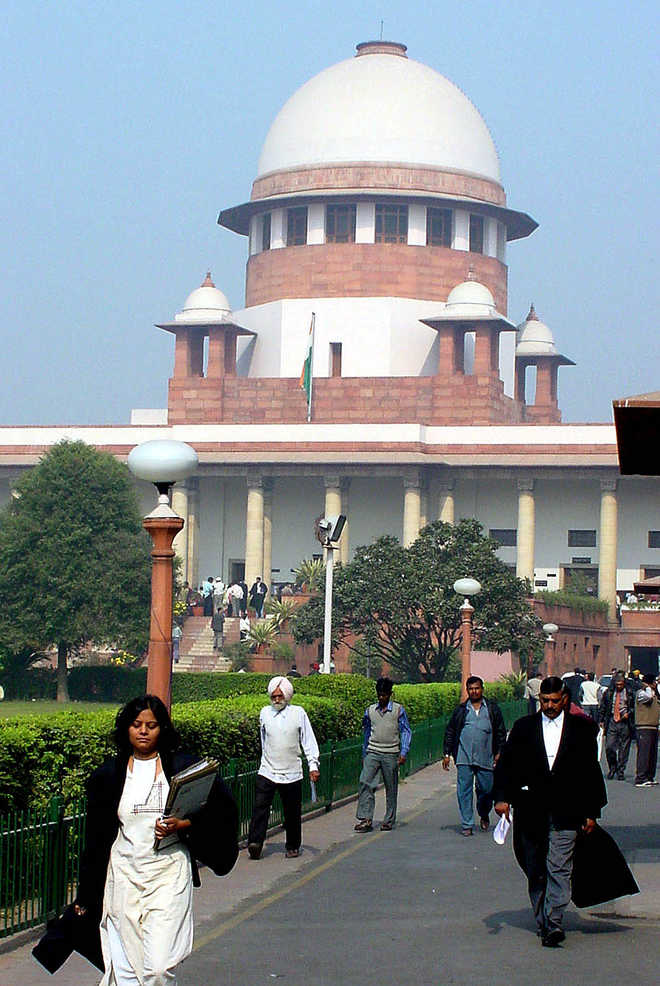
R Sedhuraman
Legal Correspondent
New Delhi, July 6
The Supreme Court today directed the authorities to issue birth certificates of children born to single or unwed women without insisting on the father’s name.
A Bench comprising Justices Vikramajit Sen and Abhay Manohar Sapre delivered the landmark ruling in a child custody case by an unwed mother identified only as “ABC.” The father of the child is married to another woman.
The Bench clarified that its directive on the birth certificate was not restricted to the “circumstances” of the present case. Pointing out that it was already not necessary to state the name of the father for school admissions and getting passports, the Bench acknowledged that, however, birth certificate was necessary for both purposes which meant disclosure of the father’s name.
“There is no gainsaying that the identity of the mother is never in doubt. Accordingly, we direct that if a single parent/unwed mother applies for the issuance of a birth certificate for a child born from her womb, the authorities concerned may only require her to furnish an affidavit to this effect, and must thereupon issue the birth certificate, unless there is a court direction to the contrary,” the Bench ruled.
“The law is dynamic and is expected to diligently keep pace with time and the legal conundrums and enigmas it presents,” the apex court explained the reason for its ruling. ABC had encountered problem in naming her five-year-old son as her nominee in her savings accounts and insurance policies. For this purpose, she was advised to provide a guardianship/adoption certificate from a court, upon which she approached the Guardian Court under Section 7 of the Guardians and Wards Act 1890 to get a declaration that she was the sole guardian of her son.
But the Guardian Court wanted to know the name of the father as under law notice should be issued to him seeking his consent to declare ABC as the sole guardian.
Upon her refusal, it dismissed her petition. She went in appeal to the Delhi High Court, which also dismissed her petition, forcing her to go to the Supreme Court.
ABC said she was not willing to disclose the identity of the man as it would create family problems for him and further complicate the issue if he refused to accept that he had sired the child.
There would be severe social complications for her and her child. So far, she had not informed him that she had given birth to a child out of their relationship.
She also pleaded that “her own fundamental right to privacy will be violated if she is compelled to disclose the name and particulars of the father of her child.”
In its ruling, the apex court clarified that the child would have the right to know the identity of his father and had accordingly advised ABC to disclose this information to her son.
Setting aside the rulings of the Guardian Court and the High Court, the Supreme Courtsaid both the courts ought not to have lost sight of the fact that they had been called upon to discharge their “parens patriae jurisdiction” to protect the rights of a neglected child.
The Guardian Court and the High Court had dismissed her petition “without considering all the problems, complexities and complications concerning the child brought within their portals,” the Bench pointed out and directed the lower court to issue the guardianship certificate without taking the consent of the father.



























